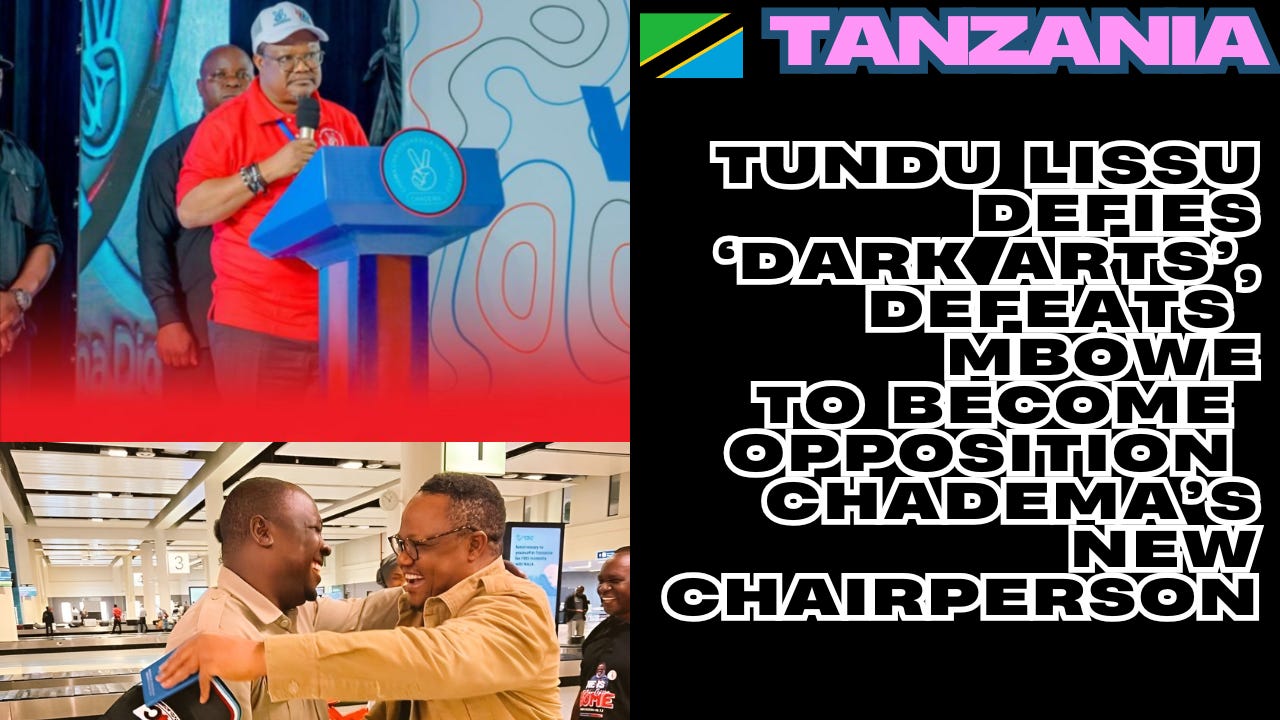Tundu Lissu’s Victory: Exposing the Limits of Tanzania’s Intelligence Apparatus ‘Dark Arts’
By Evarist Chahali, Jan 22, 2025
Tundu Lissu, a prominent Tanzanian politician, lawyer, and former Member of Parliament known for his outspoken opposition to the government, defeated Freeman Mbowe to become the new chairman of the opposition party, CHADEMA (Chama cha Demokrasia na Maendeleo), in a highly contested leadership race. Mbowe, who had led the party for years, faced significant challenges in the election, with Lissu emerging as the clear choice for many party members due to his continued resilience and vocal stance against the government’s authoritarian tendencies.
His victory is seen as a crucial moment for CHADEMA. It marks a shift in leadership that could reinvigorate the party's efforts to challenge the ruling party, CCM (Chama Cha Mapinduzi), and push for greater democratic reforms in Tanzania. Known for his resilience after surviving an assassination attempt in 2017, Lissu’s leadership in CHADEMA is expected to strengthen the opposition’s presence. With the 2025 presidential elections on the horizon, many anticipate him to be a strong candidate for the presidency.
As seen through the lens of Tanzania’s political and security landscape, Lissu’s political victory represents a fascinating interplay of popular perception, institutional power, and political strategy. The suggestion that Tanzania’s intelligence apparatus may have employed or refrained from deploying its notorious "dark arts" to influence the outcome adds a layer of intrigue and raises critical questions about the balance of power between intelligence agencies and political actors in Tanzania. To understand Lissu's win, this article examines the dynamics of Tanzania's political system, the strategic considerations of President Samia Suluhu Hassan, and the popular perception of the intelligence services’ role in shaping political outcomes.


